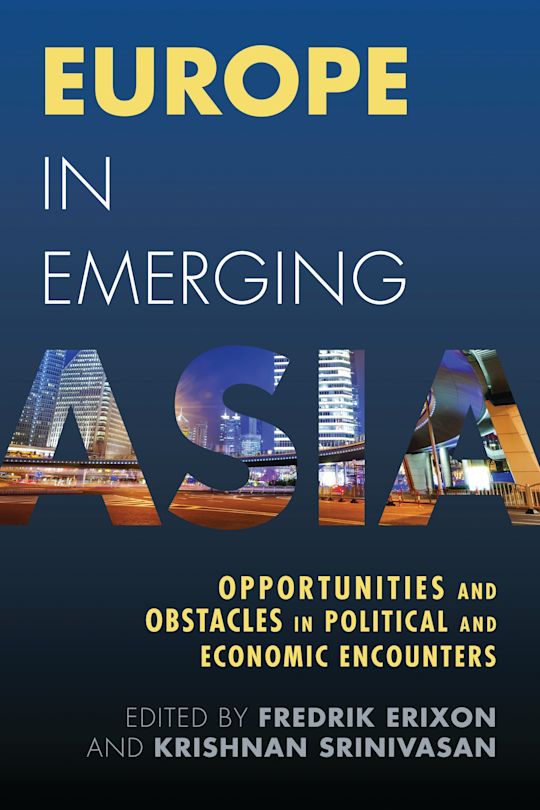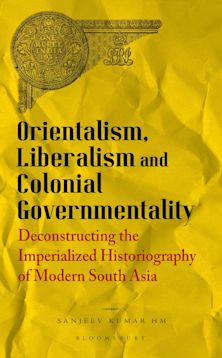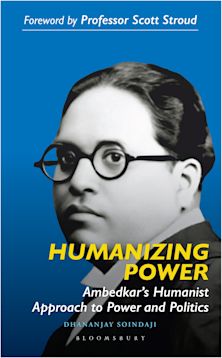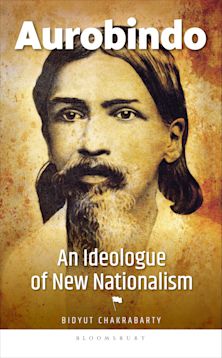- Home
- ACADEMIC
- Politics & International Relations
- Asian Politics
- Europe in Emerging Asia
Europe in Emerging Asia
Opportunities and Obstacles in Political and Economic Encounters
Europe in Emerging Asia
Opportunities and Obstacles in Political and Economic Encounters
This product is usually dispatched within 2-4 weeks
- Delivery and returns info
-
Flat rate of $10.00 for shipping anywhere in Australia
You must sign in to add this item to your wishlist. Please sign in or create an account
Description
In light of the Eurozone crisis and the growth of Asian economies, have new challenges emerged for the relations between nations in these regions? As the Asian consumer class grows and its culture globalizes, what does this mean for the export of Eurocentric values and norms? And what does the future hold for the economic, political, and cultural policies between these two powerful regions?
This book explores the relationship between European and emerging Asian economies, as globalization changes the international economic and political landscape. Reflecting on past interactions and possibilities for the future, the book brings together Asian and European perspectives from former politicians, diplomats, and academic experts to examine questions around trade and security, rights and climate change, identity clashes, and the colonial legacy. The book is a timely consideration of highly topical questions that will shape international politics in the twenty-first century.
Table of Contents
Product details
| Published | 20 May 2015 |
|---|---|
| Format | Paperback |
| Edition | 1st |
| Extent | 304 |
| ISBN | 9781783482276 |
| Imprint | Rowman & Littlefield |
| Illustrations | 6 tables; 12 graphs |
| Dimensions | 225 x 150 mm |
| Publisher | Bloomsbury Publishing |
About the contributors
Reviews
-
Europe and Asia are each undergoing major change. That is a statement of the obvious, as is the fact that comparing their development is difficult. The great strength of this study of the relationships between Europe and Asia is that it is approached with a fine measure of detachment. The point is made clearly in the introduction, which refers to the absence of undisputed definitions of what emerging Asia and Europe comprise as regional. In addition to the introduction, there are twelve chapters, dealing with different aspects of the subject. Each chapter follows a pattern, with different headed sections, and a conclusion, which makes comparison much easier — and which reflects the professional skill of the editors.
The Hindu
-
As the geopolitical foundations of the world order shift, there can be little doubt that Asia will play a defining role in the next century and beyond. In the academic and policymaking worlds, the realization of this reality has given rise to a raft of texts analyzing the future of Asia. Most have focused on the rise of China and that country’s relations with the U.S. and its Asian neighbors, while some of have taken on the subject of emerging Asia as a whole. Europe in Emerging Asia makes an important and unique contribution to this growing body of work by illuminating the often neglected subject of relations between Asia and Europe. The book draws on contributions from a broad roster of accomplished scholars and foreign policy practitioners from both continents. Their perspectives range widely in professional, cultural, and geographical background, which ensures that . . . the book leaves no stone unturned in analyzing the complicated contours of relations between the two continents. Readers will come away with both a greatly enhanced understanding of relations between Europe and emerging Asia and a renewed appreciation of the importance of strengthening the ties between the two. . . .[T]he book is impressive in both its breadth and its depth, and the topics of its chapters vary just as widely as the background of its authors. . . .Overall, Europe in Emerging Asia is an illuminating and essential read for policymakers and academics interested in the intersection of the two continents. It also does an excellent job of explaining why the relationship between the two continents is so critical for those who may not have been previously interested. Readers will come away with an in-depth knowledge of the big-picture strategic relations between the two continents, more granular detail on the situation in individual countries, and an understanding of how the relationship affects the world beyond Europe and emerging Asia. Finally, they will gain an appreciation of the vexing challenges presented by incoherent European policy and insufficient depth in the relationship, and finish the volume armed with the tools needed to overcome these persistent obstacles.
The Huffington Post
-
[A] welcome addition to the growing literature on EU-Asia relations. It examines the problems and opportunities facing the EU as it grapples with a continent containing 60% of the world’s population and likely to contain 60% of the world’s middle class in less than two decades … One of the advantages of the book is the mix of authors, including experts and policy makers from both continents.
EU-Asia Centre
-
This volume, featuring a refreshingly diverse set of highly knowledgeable contributors, addresses a gap in much global scholarship and commentary: the relationship between Europe, particularly the EU, and much of Asia. The fact that the EU is largely absent outside the spheres of commerce, tourism and high culture seems to bother neither set of regional actors unduly. This book explains why.
David Malone, Rector of the United Nations University and Under-Secretary-General of the United Nations
-
This is an excellent overview of relationships between Europe and Asia, which are exceptionally important but too frequently undervalued. Asian countries will play an increasingly vital role in shaping the 21st century and it is imperative that Europe should develop partnerships with them.
Lord Christopher Patten, Former Governor of Hong Kong, EU Commissioner, former Chairman of the BBC trust, Presently Chancellor of Oxford University
-
Erixon and Srinivasan, and their collaborators, have produced a rare book: intricate and elegant; optimistic and realistic; descriptive and prescriptive. They avoid both the familiar European bias of assuming that the EU is the height of political evolution, as well as the new Asian bias of conflating rapid growth with full human development. Instead, they tell the complex story of how diverse European states are engaging with -- and often disagreeing with -- their diverse Asian counterparts. That web of interactions is creating a new pattern for experimental globalization -- one that, on balance, may be less dynamic than optimists have hoped, but more stable than pessimists have feared.
William Antholis, Director and CEO of the Miller Center of Public Affairs, University of Virginia. Former managing director of the Brookings Institution.



































